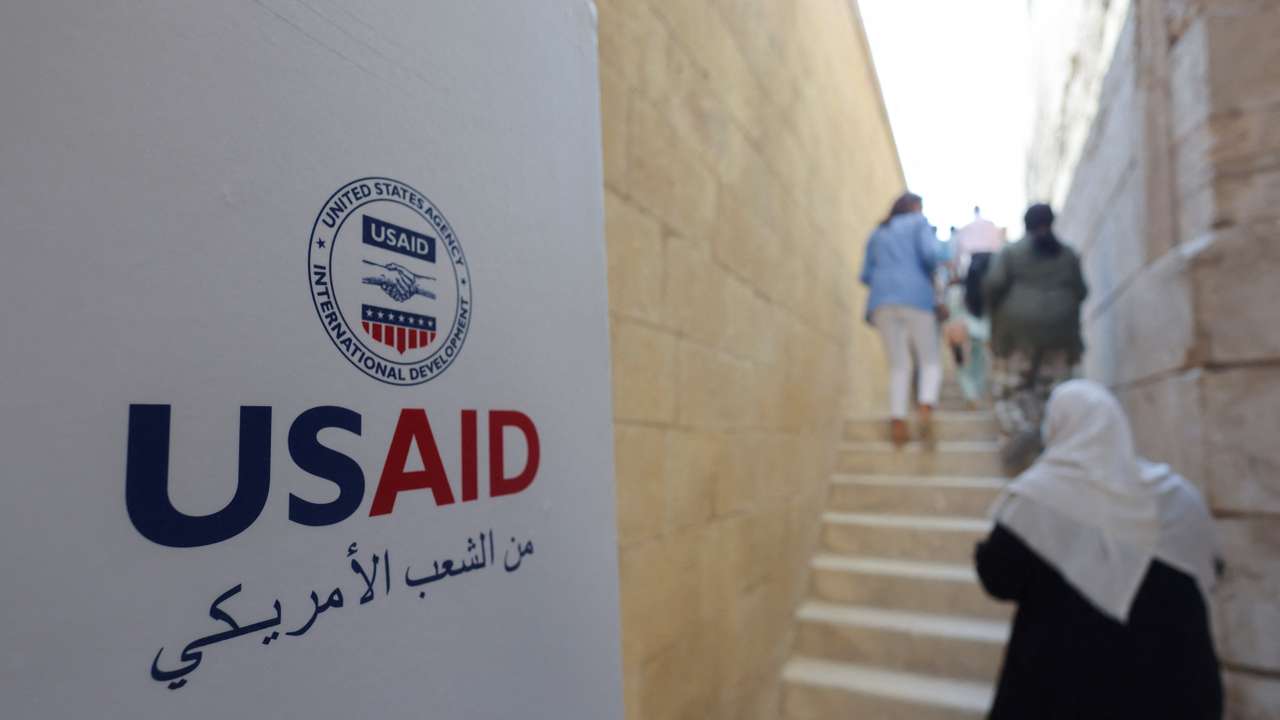African countries most impacted by USAID suspension

The recent suspension of USAID funding has left several African nations scrambling to fill the financial gap left by the U.S. withdrawal.
Among the most affected are South Sudan, Somalia, the Democratic Republic of Congo (DRC), Liberia, Sudan, Uganda, and Ethiopia - countries that rely heavily on U.S. assistance for humanitarian relief, healthcare, and economic stability.
The U.S. allocates approximately $60 billion each year to nonmilitary humanitarian and development aid - accounting for less than 1% of the federal budget yet surpassing contributions from any other nation.
“A chaotic, unexplained, and abrupt pause with no guidance has left all our partners around the world high and dry and America looking like a severely unreliable actor to do business with,” a USAID official told ProPublica.
The Centre for Global Support indicates that if USAID's funding freeze were to last a year, 23 economies - 16 low-income countries (LICs) and seven lower-middle-income countries (LMICs) - would experience an economic shock of at least 1 percent. Among them, eight nations would suffer a severe impact of 3 percent or more: South Sudan (9 percent), Somalia (9 percent), Afghanistan (7 percent), Liberia (4 percent), Syria (5 percent), the Central African Republic (4 percent), Yemen (4 percent), and Micronesia (3 percent).
South Sudan
South Sudan, one of the world’s youngest nations, faces severe food insecurity and ongoing conflict, making it one of the most aid-dependent countries globally. USAID has been a major provider of emergency food assistance, health services, and peacekeeping efforts.
With the funding freeze, millions are at risk of malnutrition and disease outbreaks, while peace and stability efforts may suffer setbacks.
“I’ve been an infectious disease doctor for 30 years, and I’ve never seen anything that scares me as much as this,” said Dr. Jennifer Furin, a Harvard Medical School physician who received a stop-work order for a program designing treatment plans for people with the most drug-resistant forms of tuberculosis.
Somalia
Somalia, long plagued by terrorism, political instability, and food shortages, relies on USAID for humanitarian aid and famine prevention. The funding halt could worsen an already dire situation, where millions face starvation due to prolonged droughts and ongoing conflict with extremist groups. USAID-backed vaccination and nutrition programs could also be in jeopardy. Amongst others, “through over 450 quick-impact activities worth over $38 million, USAID is helping Somalis demonstrate the benefits of political reconciliation,” a report by the USAID read.
Democratic Republic of Congo (DRC)
The DRC has endured decades of conflict, poverty, and weak governance, making it one of Africa’s most fragile states. USAID funding has supported healthcare services, refugee assistance, and development projects. Without this aid, displacement camps housing millions of internally displaced persons (IDPs) could see a collapse in essential services. The halt could also disrupt efforts to contain disease outbreaks, including Ebola. The U.S. Embassy in the Democratic Republic of Congo (DRC), which remains closed until further notice, issued a security alert on Tuesday advising U.S. citizens in Kinshasa to "shelter in place" amid ongoing protests. The embassy also urged citizens to "depart safely while commercial travel options remain available," CNN reports.
Liberia
Liberia, still recovering from the devastating Ebola crisis and years of civil war, depends on USAID primarily for healthcare infrastructure and disease control. The country’s health system is weak, and USAID has played a key role in providing medical supplies, training healthcare workers, and funding immunisation programs. The withdrawal of U.S. support could lead to a surge in preventable diseases and a collapse in maternal and child health services. USAID spearheaded the U.S. government’s international response to the Ebola outbreak, ultimately bringing the number of cases to zero. In total, the virus infected over 28,600 people and claimed 11,300 lives.
Sudan
Sudan is grappling with armed conflicts and a fragile transition to civilian rule, and USAID has been a critical source of emergency food aid and development assistance. For the past 21 months, USAID and State Department staff have worked to reopen aid routes. Despite slow progress, American-supported convoys were finally beginning to reach some of the most severely affected areas. The suspension of funding will increase the risk of famine, especially in conflict-affected regions like Darfur, while also weakening governance and civil society initiatives aimed at stabilising the country.
Uganda
Uganda is one of the few African nations where USAID has heavily invested in population and reproductive health programs. The funding freeze could result in reduced access to contraceptives, family planning, and maternal healthcare, affecting millions of women and children. Additionally, HIV/AIDS programs that depend on U.S. support may see disruptions, reversing years of progress. Flavia Kyomukama, from the National Forum of People Living with HIV/AIDS Networks Uganda (NAFOPHANU), expressed shock over Donald Trump's decision. "We are still struggling to process what has happened - it’s incredibly difficult to comprehend," she said. "There was a memorandum of support between our countries, a clear roadmap toward zero infections, and yet this decision was made in a single day."
Ethiopia
Ethiopia, Africa’s second-most populous nation, has been dealing with a devastating civil war, widespread hunger, and political instability. USAID has been one of the largest donors in Ethiopia, supporting food security, disaster relief, and healthcare. The aid freeze could worsen the humanitarian crisis, with millions at risk of starvation and displacement, particularly in the conflict-ridden Tigray region. “The pause of U.S. foreign assistance on Ethiopia will affect many areas of development; however, its impact on Ethiopia’s national HIV response is particularly severe,” an update by the UNAIDS read.